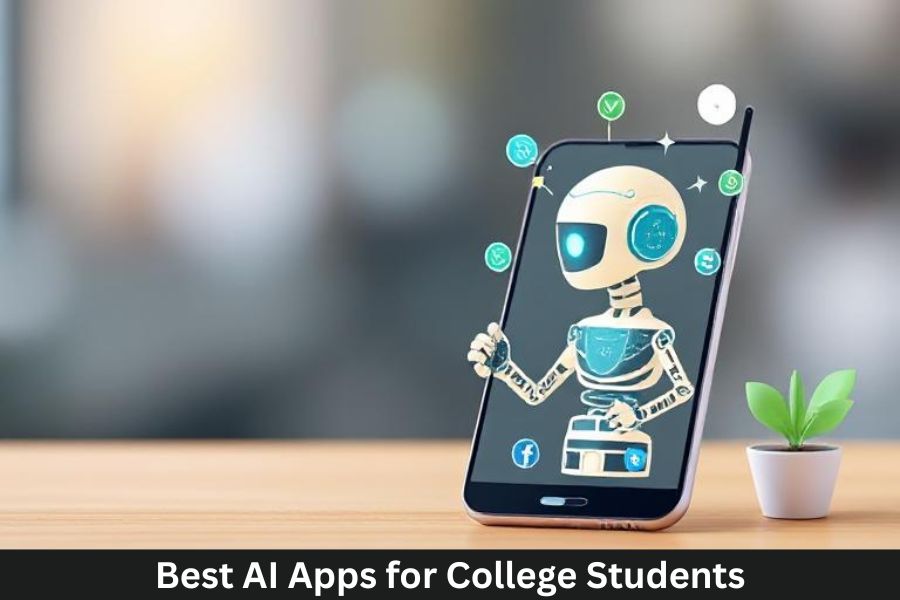College life means juggling lectures, assignments, exam prep, group projects, and, ideally, a bit of free time. The right AI tools can help lighten the load, make studying more efficient, and let you focus more on understanding rather than just doing. Below are several AI-powered apps that many students find useful, plus tips on choosing and using them smartly.
Why Use AI Apps in College
Before listing apps, it’s worth thinking about why AI helps:
- Save time: Automate routine tasks (note-taking, transcription, summarizing) so you can spend more time thinking.
- Improve quality: Better writing, accurate math problem steps, fewer errors.
- Support learning styles: Visual, auditory, or reading/writing learners can use different tools that match their style.
- Accessibility: Some tools help students with disabilities (speech-to-text, etc.).
- Stay organized: AI can help with planning, reminders, structuring large tasks.
Top AI Apps for College Students
Here are apps that are especially helpful, categorized by what a student might need them for:
| Use Case | App | What It Does / Why It’s Useful |
|---|---|---|
| Writing & Grammar Help | Grammarly | Checks grammar, spelling, clarity, style. Helps polish essays and emails. |
| Summaries & Study Aid | Notion AI | Helps you organize notes, summarize long texts, plan study schedules. |
| Math & Problem Solving | Photomath | Use your camera to scan math problems (printed or handwritten); shows step-by-step solutions. |
| Homework Help / Q&A | QANDA | Scan or input questions; get detailed solutions/explanations, especially for math. |
| Lecture Transcription / Notes | Otter.ai | Records lectures or spoken content, transcribes it, highlights key parts. Useful for review. |
| Knowledge Engine / Research | WolframAlpha | Helps with solving math/science queries, giving detailed computational & factual answers. |
| Visual / Homework Snap-and-Solve | Socratic by Google | Take a photo of the question or input it, and the app gives explanations, helpful for STEM subjects. |
How to Choose & Use AI Apps Wisely
Having a good app isn’t enough — how you choose and use it matters a lot. Here are some tips:
- Free vs Paid
Many apps have free tiers, but the full features (higher usage, more uploads, advanced tools) often cost money. See if your school gives discounts or free access (some do). - Accuracy & Verification
AI is powerful but not perfect. Always cross-check solutions for math, facts for essays, etc. Don’t take everything at face value. - Learning vs Copying
Use AI to help you understand, not just to do work for you. For example, when an app solves a problem, go through the steps and try similar ones yourself. - Manage Your Data
Know what you’re uploading or sharing. Lecture notes, assignments, papers may have private or sensitive data. Use tools with good privacy policies. - Integrations & Workflow
Apps that sync with your calendar, cloud storage (Google Drive, OneDrive), or LMS (learning management system) help reduce friction. - Adaptive Learning
Look for tools that adapt to how you learn (e.g., focusing more on concepts you struggle with, giving different types of practice).
What’s New / Trends in AI Apps for Students
- AI Study Modes: Some tools now offer “study mode” features (as in ChatGPT) that are specifically tailored for learning, helping with quizzes, explanations, etc.
- Free or Discounted Premium Access for Students: Google AI Pro, for example, has been offered free for college students in some regions, giving access to advanced AI tools.
- Better Note-Management Tools: Apps that let you upload PDFs, images, even audio/video, then use AI to summarise, question-generate (flashcards etc.).
- Multimodal Support: Being able to work with text, images, handwritten notes, diagrams, etc. makes tools far more versatile.
Potential Drawbacks & How to Mitigate Them
While AI apps are powerful, there are some challenges:
- Over-dependence: Using AI too much can hinder your ability to think critically or learn foundational skills.
- Cost: Premium versions can be expensive; not all students will be able to afford them.
- Ethical / Academic Integrity: Some professors have strict rules about using AI, especially for essays. Use carefully and cite/acknowledge where needed.
- Privacy & Data Security: If apps aren’t secure, your notes, exam answers, or personal data may be at risk.
To mitigate:
- Use AI tools in addition to traditional study methods.
- Always check your institution’s policy on AI usage.
- Use tools that store data locally or with strong privacy.
- Try to understand the steps (e.g. in math) rather than just copy solutions.
My Recommendations: What to Try First
If I were you, starting college or now in college, here’s how I’d pick a set of tools:
- ChatGPT (or similar) for brainstorming, rough drafts, topic understanding.
- Grammarly to polish writing.
- Photomath or QANDA when stuck on math / problem solving.
- Otter.ai to record lectures so I can pay attention rather than furiously writing.
- Notion AI to keep everything organized — notes, assignments, projects.
Try the free versions first so you get a feel for what fits your workflow.
Conclusion
AI apps are not magic, but they are powerful helpers. For college students, the right tools can make a big difference in managing workload, improving understanding, staying organized, and freeing up time to focus on what matters: learning deeply, thinking critically, and also resting. Choose wisely, use ethically, and balance AI assistance with doing things yourself — that’s where growth happens.



